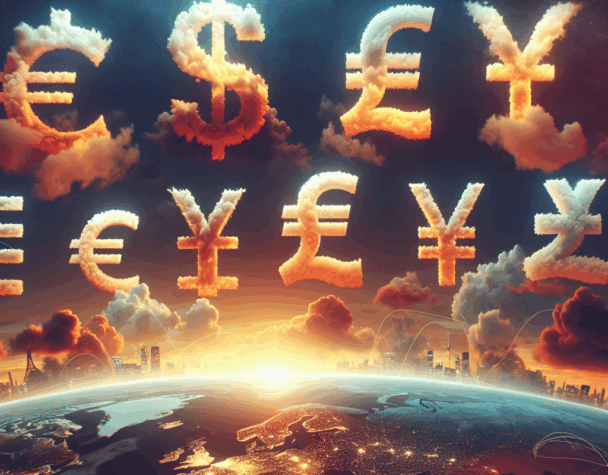
Global Currency Markets React to Geopolitical Tensions and Economic Policies
Mon, June 30, 2025U.S. Dollar Declines Amid Political Uncertainty
The U.S. dollar has fallen to its lowest value in over three years, decreasing about 10% this year. This depreciation is attributed to investor concerns over the Federal Reserve’s independence and potential interest rate cuts influenced by political pressures. President Donald Trump’s criticism of Fed Chair Jerome Powell and suggestions of alternative candidates have raised fears of politically motivated monetary policy. As a result, the dollar has declined 10% this year, on track for its worst performance since 2003. No love for the dollar as markets fret about Fed independence
Central Banks Diversify Reserves Away from U.S. Dollar
Global central banks, managing a combined $5 trillion in reserves, are increasingly diversifying away from the U.S. dollar. A recent report by the Official Monetary and Financial Institutions Forum (OMFIF) reveals that a net 40% of central banks plan to increase gold holdings over the next decade, the highest level in five years. The euro is now the most in-demand currency for near-term reserve increases, with a net 16% of banks planning to raise euro holdings, followed closely by the yuan. Over the next decade, the yuan’s share of global reserves could triple to 6%. Central banks eye gold, euro and yuan as dollar dominance wanes
Hong Kong Intervenes to Defend Currency Peg
On June 26, 2025, the Hong Kong Monetary Authority (HKMA) intervened in the foreign exchange market, spending HK$9.4 billion (US$1.2 billion) to support the Hong Kong dollar as it approached the lower limit of its trading band at HK$7.85 per US dollar. This move, aimed at maintaining the currency peg, will reduce liquidity in the banking system and has already pushed the overnight interbank lending rate to 0.0375%, its highest since mid-May. Hong Kong intervenes to defend currency peg
Emerging Markets Experience Capital Inflows
PIMCO, a major bond fund managing $2 trillion in assets, views emerging markets (EM) as being in a “Goldilocks” moment, citing favorable conditions due to U.S. President Donald Trump’s unpredictable policies that have weakened the dollar and spurred a shift away from U.S. investments. As a result, EM local currency debt has seen record inflows, and emerging market stocks are outperforming the S&P 500 by 10 percentage points in 2025. EM local currency bonds also returned over 11% in dollar terms. Bond giant PIMCO sees emerging markets in ‘Goldilocks’ moment
Asian Currencies Face Pressure Amid Middle East Conflict
Investor sentiment towards Asian currencies has weakened due to the ongoing conflict between Israel and Iran, which elevated oil prices and bolstered demand for the U.S. dollar as a safe haven. According to a Reuters poll, bullish positions in the South Korean won, Taiwan dollar, Indonesian rupiah, and Malaysian ringgit have slightly declined. Rising oil prices are particularly problematic for oil-importing Asian economies, exacerbating current account deficits. Asia FX bulls retreat after Middle East conflict dents risk appetite: Reuters poll
Conclusion
The global currency markets are experiencing significant fluctuations influenced by geopolitical tensions, economic policies, and central bank actions. Investors and policymakers must navigate these complexities to maintain stability and growth in the international financial system.

